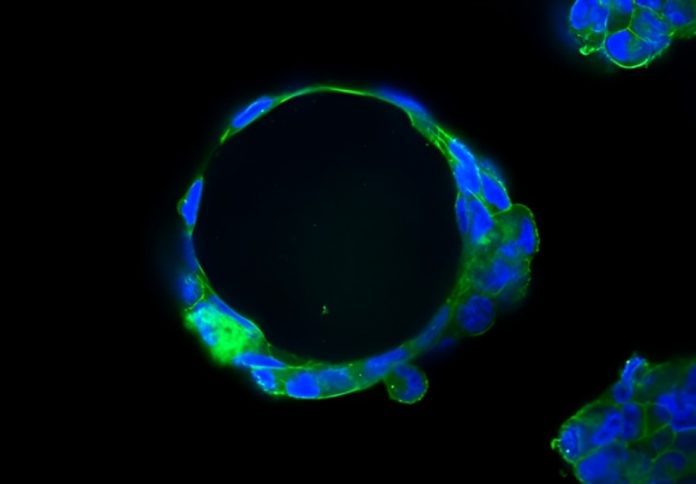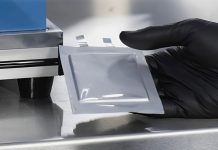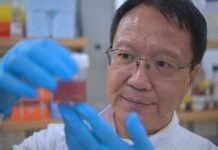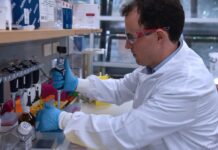
A new microfluidic platform developed at the University of Queensland’s Australian Institute for Bioengineering and Nanotechnology (AIBN) could help accelerate the development of regenerative medicines by improving how researchers handle sensitive living materials.
The technology, led by Dr Ruirui Qiao and her team at AIBN, uses a patented microfluidics tool called UQ-Surf to produce temperature-responsive microgel droplets that can be used to explore a wide range of biomedical applications, including tissue engineering and cell therapy.
Microfluidics, the manipulation of fluids at a microscopic scale, allows precise control over experimental environments, offering new ways to study and work with delicate biological materials, as stated in a news release.
“In a microgel droplet we can work with materials in ways that would otherwise have been impossible,” Dr Qiao said. “But it is extremely tricky to create microgels capable of incubating living materials.”
Dr Qiao said the UQ-Surf platform simplifies this challenge by eliminating the need for harsh chemical treatments or complex recovery processes, which can often compromise the quality of the material.
“The technology we’ve created greatly simplifies the process – saving time and money – with an added option of changing the droplet’s function by simply changing the temperature,” she said.
The platform’s ability to function without chemical demulsifiers is particularly significant in clinical settings where contamination risks must be minimised.
“The level of control you get with traditional microgel droplets usually comes at a cost – the potential contamination of the living material you’re working with,” Dr Qiao said.
“UQ-Surf removes this risk, because we don’t need harmful chemical demulsifiers or additional processing steps to recover encapsulated microgels. We only need to change the temperature.”
According to AIBN, the patented technology, developed with support from UQ commercialisation company UniQuest, has already been deployed in laboratory settings, signalling early market readiness.
Dr Qiao noted that the platform could support drug screening, targeted delivery of cells and genes, and the advancement of 3D models for research purposes.
“The global microfluidics market is projected to reach $US41.6 billion ($64.2 billion) by 2028, nearly double what it was in 2023,” Dr Qiao said. “Our aim is to play a role in this growth.”
The research, published in Advanced Materials Interfaces, is the result of a multi-institutional collaboration involving AIBN researchers Professor Tom Davis, Xiangke Li, Dr Helen Forgham, Qiuren Shen, and Dr Liwen Zhang, alongside experts from the UQ School of Mechanical and Mining Engineering, Brisbane-based biotech firm Gelomics, the University of Adelaide, Queensland University of Technology, and the National University of Singapore.


















